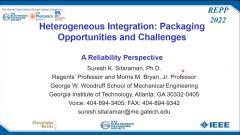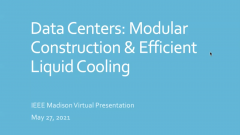Tutorial: Model Predictive Control of Power Electronic Converters, Part One, Jose Rodriguez - IECON 2018
Model Predictive Control (MPC) is a conceptually simple yet powerful methodology to control power converters and electric drives. It has many advantages over traditional linear controllers including (i) faster response, (ii) high robustness to parameter variation (iii) explicit multivariable control accounting for the process and actuator constraints.
Particularly, the finite-set MPC (FS-MPC) takes advantage of the discrete model of the converter to predict its future behaviour for every possible switching configuration. The predicted numerical values of converter’s state variables at the next sampling step are then used in the cost function that defines the desired performance of the system. This approach yields a simple and intuitive implementation, where constraints of the state variables can be explicitly dealt with, while several performance objectives can be balanced by properly selecting the weighting factors associated with each objective. Due to these benefits and enabled by improvements in computational power of modern microprocessors, FS-MPC has been applied to numerous power electronic applications in the recent years.
This tutorial will provide the fundamentals required to understand, design and implement state-of-the-art MPC methods in grid-connected power converters, electrical drives and microgrids.
Furthermore, it will tackle some of the long-standing research problems associated with the FS-MPC, i.e. the analytical performance validation and the optimal tuning of the weighting factors in the cost function.
 Cart
Cart Create Account
Create Account Sign In
Sign In





